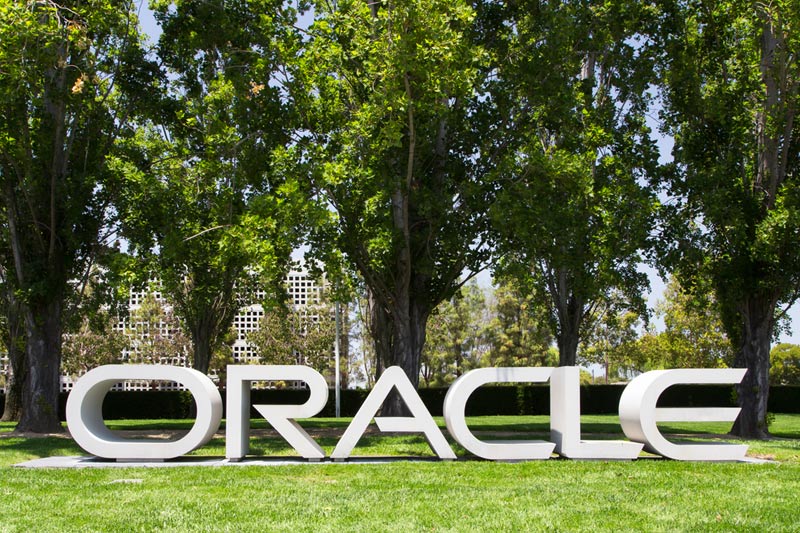AUSTIN, Texas - Oracle (NYSE:ORCL) and Google Cloud have announced a partnership to facilitate enterprise customers' application migrations and modernization efforts by combining Oracle Cloud Infrastructure (OCI) with Google Cloud technologies. This collaboration will allow customers to leverage the strengths of both cloud services, aiming to simplify cloud migration, multicloud deployment, and management.
The partnership will introduce Google Cloud's Cross-Cloud Interconnect, initially available in 11 global regions, enabling customers to deploy general-purpose workloads without incurring cross-cloud data transfer charges. Later this year, Oracle Database@Google Cloud will launch, offering the highest level of Oracle database and network performance, with feature and pricing parity with OCI.
Larry Ellison, Oracle Chairman and CTO, highlighted the partnership's focus on meeting the growing demand for multicloud flexibility. Sundar Pichai, CEO of Google and Alphabet (NASDAQ:GOOGL), emphasized the benefits for joint enterprise customers, who will now be able to integrate Oracle databases and applications with Google Cloud's platform and AI capabilities.
The new offering, Oracle Database@Google Cloud, will provide direct access to Oracle database services within Google Cloud datacenters. Customers will benefit from a unified purchasing and contracting experience through the Google Cloud Marketplace, simplified migration options, and a unified customer experience and support framework from both companies.
Oracle will manage the database services directly in Google Cloud datacenters, starting with regions in North America and Europe. The services, including Oracle Exadata Database Service, Oracle Autonomous Database Service, and Oracle Real Application Clusters, are set to launch later this year, with plans for rapid expansion worldwide.
The partnership also enables customers to innovate by using the optimal combination of Oracle's and Google Cloud's services, take advantage of low-latency multicloud network performance, and build new cloud-native applications using technologies from both clouds.
This collaboration is part of Oracle's broader distributed cloud strategy, which includes dedicated, hybrid, public, and multicloud options, allowing customers to deploy cloud and AI stacks as a Sovereign Cloud. Google Cloud, known for its AI, infrastructure, and developer tools, continues to serve as a technology partner for organizations worldwide.
In other recent news, Oracle has announced a significant partnership with Microsoft (NASDAQ:MSFT) and OpenAI to enhance Microsoft Azure's AI platform. This collaboration is expected to provide additional capacity for OpenAI and propel AI innovation across various industries. Oracle's Cloud Infrastructure (OCI) will play a crucial role in this expansion, as it already serves AI innovators like Adept, Modal, MosaicML, NVIDIA (NASDAQ:NVDA), Reka, Suno, Together AI, Twelve Labs, and xAI.
In financial news, Barclays (LON:BARC) has maintained its Overweight rating on Oracle, with a focus on the company's revenue growth guidance for fiscal year 2025. Analysts project a slight growth acceleration to approximately 8.6% year-over-year, crucial for achieving the projected revenue target of $65 billion in fiscal year 2026. Evercore ISI also maintained an Outperform rating on Oracle, citing the anticipation of a solid fourth quarter and a fiscal year 2025 guidance that aligns with current estimates.
Oracle's recent developments include plans for a potential collaboration with Elon Musk's xAI to construct a supercomputer by fall 2025. The company has also rolled out new AI tools for its Oracle Fusion Cloud Customer Experience, aiming at improving customer satisfaction and accelerating deal cycles. Oracle's cloud regions have also been accredited by the U.S. Department of Defense, enabling the hosting of Secret classified workloads. These recent developments highlight Oracle's continuous efforts to innovate and expand in the AI and cloud services sector.
InvestingPro Insights
As Oracle (NYSE:ORCL) forges a notable partnership with Google Cloud, its financial and market metrics are essential for investors to understand the company's current position. Oracle's market capitalization stands at a robust $340.29 billion, underscoring its significant presence in the software industry, which is further emphasized by its role as a prominent player in this sector, according to InvestingPro Tips. The company's commitment to shareholder returns is reflected in its track record of raising dividends for 10 consecutive years and maintaining dividend payments for 16 consecutive years, signaling financial stability and confidence in its business model.
Investors should note that Oracle is trading at a high price-to-earnings (P/E) ratio of 31.89, which suggests a premium valuation relative to near-term earnings growth. Additionally, the company's price-to-book (P/B) ratio as of the last twelve months ending Q3 2024 is 60.52, indicating that the stock may be trading at a high valuation in terms of its net asset value. Despite these high valuation multiples, Oracle's stock has shown low price volatility, which could be an attractive feature for risk-averse investors.
For those considering an investment in Oracle, there are 12 additional InvestingPro Tips available at https://www.investing.com/pro/ORCL. By using the coupon code PRONEWS24, readers can get an additional 10% off a yearly or biyearly Pro and Pro+ subscription, which provides further insights and data that could inform investment decisions in this evolving partnership between Oracle and Google Cloud.
This article was generated with the support of AI and reviewed by an editor. For more information see our T&C.
